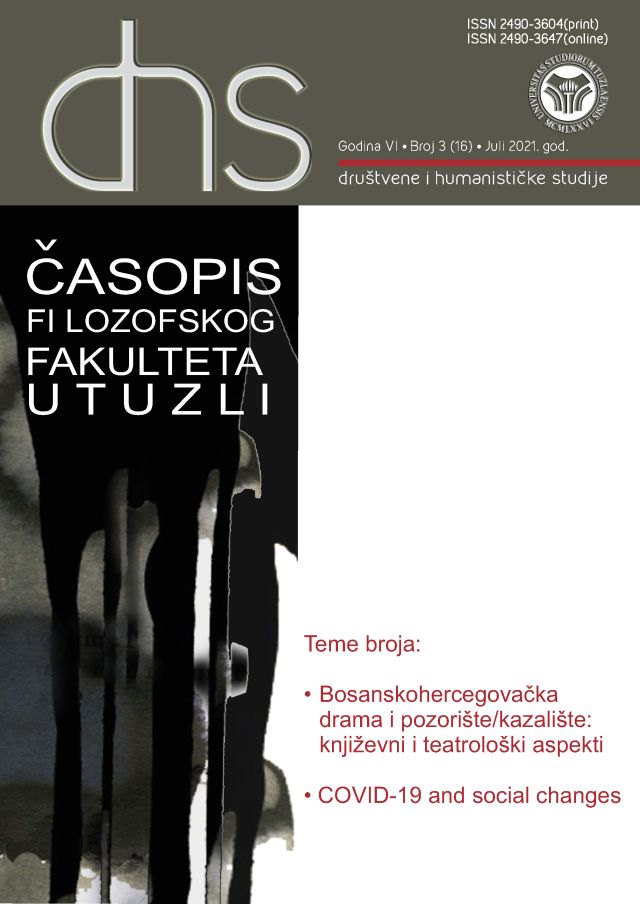Princip konstitutivnosti naroda: prepreka ostvarenju narodnog suvereniteta u Bosni i Hercegovini?
The Principle of Constituency of Peoples: An Obstacle to the Achievement of Popular Sovereignty in Bosnia and Herzegovina?
Author(s): Dženeta OmerdićSubject(s): Politics / Political Sciences, Politics, Law, Constitution, Jurisprudence, Constitutional Law, Governance
Published by: Filozofski fakultet Univerziteta u Tuzli
Keywords: Constituent peoples; popular sovereignty; the rule of law; Bosnia and Herzegovina; discrimination;
Summary/Abstract: Before the socio-political communities are posted, a very demanding task of defining the subject on whose name will behalf political power is implemented over a given state territory. However, the question about the subject of sovereignty should in no case be misunderstood as an issue of simply theoretical approach. The level of a state’s democracy, as well as its ability to realize internal and external sovereignty, depends entirely on fact: does the power belong to the People and whether it derives from the People. In other words, the issue of popular sovereignty is a substantial, constitutive element of modern democratic states.When we speak about contemporary Bosnia and Herzegovina, the functionality of the entire state government is often hindered by the complex decision-making processes at all state levels which lead to obstruction of the entire decision-making process. Such a dysfunctional decision-making process on the state level poses a threat and disables the Bosnian plural society to respond to the modern challenges of a democratic functioning state. The legal nature of Bosnian society is determined by the existence of constituent people who have “usurped” the entire decision-making process. There is still no end in sight to the struggle that leads to an oligarchy of the ruling elites; furthermore, there is still no appropriate socio-political mechanism that will enhance the accountability of the representatives to their voters; it is still inconceivable that decisions of state authorities are effectively and consistently implemented throughout the national territory. In other words, there is still no appropriate mechanism that will enhance the principle of popular sovereignty.It is necessary to “offer” Bosnia and Herzegovina’s pluralism and its political tradition a form of democratic authority which in no way should be a cliché. Furthermore, it may not be one of the “copy-paste” models of democratic authority. Currently, citizens of B&H are completely suspended (de facto, there are only citizens of entities). In the Federation of Bosnia and Herzegovina Serbs are suspended, while in the Republika Srpska, Bosniacs and Croats cannot equally participate in the decision-making process. An unfinished process of implementation of the Dayton Agreement and, in particular, Annex 4 (the Constitution of B&H), whose provisions permit discrimination against the citizens of Bosnia and Herzegovina (the impossibility of the realization of the principle of equality in the exercise of universal suffrage), as well as the non-application of the Decision of the European Court of Human Rights contributes and is conducive to further segmentation of Bosnian society.
Journal: DHS-Društvene i humanističke studije: časopis Filozofskog fakulteta u Tuzli
- Issue Year: XVI/2021
- Issue No: 16
- Page Range: 323-350
- Page Count: 28
- Language: Bosnian

